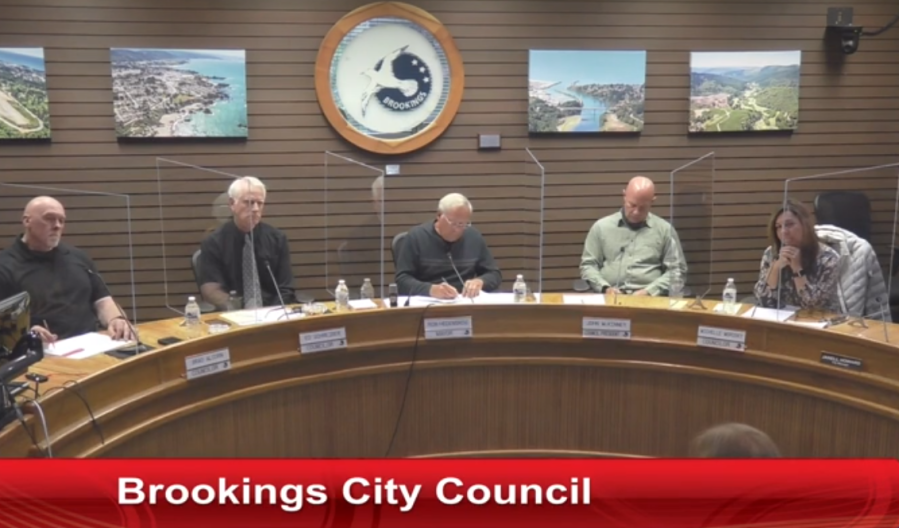DOJ: City of Brookings ban on feeding homeless may violate religious freedoms

- Oops!Something went wrong.Please try again later.
- Oops!Something went wrong.Please try again later.
PORTLAND, Ore. (KOIN) — The U.S. Department of Justice filed a statement of interest in U.S. District Court on Nov. 21 stating that an ordinance passed by the City of Brookings in 2021, which limits the number of days per week organizations can feed the hungry, may have “substantially burdened” a local church’s religious freedoms.
The statement was issued nearly two years after the Oregon Justice Resource Center filed a lawsuit in federal court against the City of Brookings in response to the ordinance on behalf of the St. Timothy’s Episcopal Church and its Portland-based diocese — the Episcopal Diocese of Oregon. The ordinance was specifically passed in response to St. Timothy’s daily meal services, which it regularly provides for Brookings’ homeless residents.
DOJ Assistant Attorney General Kristen Clarke of the department’s Civil Rights Division called the ordinance an act of “discriminatory zoning.” The DOJ also stated that the ordinance also violates the Religious Land Use and Institutionalized Persons Act.
“Many churches and faith-based organizations across the country are on the front lines serving the critical needs of people experiencing hunger and homelessness,” Clarke was quoted as saying in an official statement. “Discriminatory zoning restrictions that burden and limit religious organizations’ use of their land violate federal antidiscrimination laws. The Justice Department is committed to enforcing federal civil rights laws to ensure that all religious groups can freely exercise their religious beliefs.”
Teacher strike over: Portland students back in class Monday
The church testified in court that providing free meals to people in need is “fundamental” to the faith of its parishioners, the federal statement reads. While the city has argues that the partial ban did not violate St. Timothy’s religious freedoms under the Religious Land Use and Institutionalized Persons Act, the DOJ stated that it intends to prove otherwise.
“The department is refuting the city’s claims,” the DOJ said in a statement. “Specifically, it asserts that RLUIPA’s protections apply in this context, that St. Timothy’s provision of meals to people in need is protected religious exercise and that the city’s attempt to restrict St. Timothy’s meal service may have substantially burdened the church’s religious exercise by forcing it to violate its beliefs in order to comply with local land use laws.”
Bishop of the Episcopal Diocese of Oregon Rev. Diana Akiyama issued her own statement in response to the DOJ’s assertion in the case.
“We believe our right to religious expression by fulfilling the Gospel call to serve the hungry and outcast is protected by the Constitution,” Akiyama said. “We welcome the DOJ’s interest in our lawsuit and join numerous other religious organizations who are fighting the suppression of religious expression in order to continue serving those in need.”
Motorcyclist dead after crash involving school bus in Tualatin
None of the Brookings City Council members who passed the ordinance remain in office after voters approved a sweeping recall that wiped the board clean in November, the Wild Rivers Outpost reports. The vote, which will be certified on Dec. 4, recalled Brookings Mayor Ron Hedenskog and councilors Michelle Morosky and Ed Schreiber. Hedenskog and Morosky resigned following the election. Former Bookings Councilman Brad Alcorn was elected to the Curry County Board of Commissioners in November of 2022.
While the ordinance remains in effect, organizations are limited to no more than two “benevolent meal services” a week within Brookings city limits. The two meal services are permitted to operate for three hours per day anytime between 9 a.m. and 5 p.m.
For the latest news, weather, sports, and streaming video, head to KOIN.com.

